A new cooperation agreement between the Netherlands Institute for the Near East (NINO), Leiden University (LU) and the National Museum of Antiquities (RMO) has been signed and will take effect starting from January 2018. As research centre the new NINO will actively stimulate scholars’ and students’ research into the ancient Near East – by maintaining and expanding our library in cooperation with Leiden University Libraries, instigating fellowships and grants, and through our publishing program.

NINO’s mission is to facilitate scientific research on the ancient Near East, including Egypt. From its location at Leiden University in the Netherlands, it provides excellent research facilities and a variety of instruments in support of students and researchers working locally and remotely. As a local-global research infrastructure, the NINO research centre will maintain and enhance its role as a pivot in the field of ancient Near Eastern Studies.
Through its actions, the centre aims to
• advance knowledge of the history and languages of the ancient Near East, including Egypt, its archaeological remains and its cultural heritage, in the Netherlands and worldwide;
• foster discussion and collaboration between learners in these fields at all levels of expertise, locally and remotely;
• strengthen the research infrastructure for the ancient Near East, physically and digitally;
• invite reflection on the fields of ancient Near Eastern studies.
NINO realises its mission by offering open facilities (library, publications, collections, communication) and a range of actions to encourage curiosity-driven projects emanating from within the research community.
Starting from 2018 the NINO research centre will develop a new fellowship program and create various subsidies for research activities, mobility stipends, and prizes. Most funding will be granted on a competitive basis, with an open call for applications. We envisage a community of postdocs, affiliated fellows, student researchers, and visiting professors. Our program is designed to support research in ancient Near Eastern Archaeology, Assyriology, and Egyptology in the Netherlands and abroad, among students as well as advanced scholars.
The NINO library collections are given on loan to Leiden University Libraries (UBL). The library budget is doubled, and new acquisitions from 2018 onward are shared property between NINO and UBL. The three staff members working at our library are henceforth employed by UBL, and specifically detailed to work on the NINO library collections.
In the coming years, UBL will realize a new Middle Eastern Library, in which the NINO library will be a high-profile component. After completion of major renovations to the buildings south of the main University Library (planned for 2021), the NINO library and offices will join the Leiden University Institute for Area Studies (LIAS), KITLV/Royal Netherlands Institute of Southeast Asian and Caribbean Studies and the African Studies Centre Leiden in the new premises, where UBL’s longer opening hours will be adopted.
NINO stands to benefit from the specialised knowledge and experience of the National Museum of Antiquities, Leiden (RMO) with regard to the archaeological objects in our collections, notably the cuneiform tablets in our Böhl Collection. Starting from 2019 the Böhl Collection will be given on loan to RMO with the purpose to step up digitisation of the whole collection and restoration of objects where needed. Leading up to this major enterprise, we will dedicate one or more projects in 2018 to cataloguing the collection. Both NINO and RMO are dedicated to ensure continued accessibility of the Böhl Collection for students and researchers in the short and long term.
Other collections in NINO’s possession – mainly archives and photographic materials – have been inventoried and await further assessment. Detailed agreements regarding these collections will be made with either RMO or LU(L) in 2018.
The research centre will continue the NINO publication program, notably our series PIHANS, Egyptologische Uitgaven (co-published with Peeters, Leuven), Achaemenid History, and our journals Anatolica and Bibliotheca Orientalis. 2018 will be dedicated to formulating and implementing plans to further promote our publications, their availability to customers, and their attractiveness for authors. Specifically, we intend to make our NINO publications peer-reviewed instead of refereed where possible, and to study possibilities – with due attention to cost-benefit considerations – to offer them to readers in open access. After a major effort working with our various editorial boards behind the scenes, authors and readers should be able to enjoy our NINO publications in their revamped forms from mid-2019 onwards.
NINO will co-sponsor activities organised by partners to raise awareness of the ancient Near East among a broader public. We will not limit ourselves to our long-standing partners RMO and Ex Oriente Lux (EOL), but seek cooperation with other organisations and societies in the Netherlands. The Veenhof Lecture, organised annually in November with RMO, will continue to be one of the public highlights in our year.
Starting from January 2018, NINO will be directed part-time by Caroline Waerzeggers, Professor of Assyriology at Leiden University, for two years. The directorship will rotate among staff specializing in the ancient Near East at Leiden University. Our board (curatorium) will review its structure and position. The new organisational structure of NINO is envisaged to include a steering committee, a scientific committee, and a library committee.
